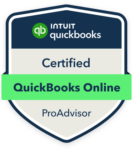Did you know that 82% of small businesses fail due to poor cash flow management? Ideally, managing expenses is crucial through tips for small business owners for the success and survival of any small business. By closely monitoring your finances, you can ensure that your business remains profitable and sustainable for a long time.
Do you want to achieve the same success and stability? You’ve come to the right place if you’re a small business owner looking to boost your financial health. Managing expenses doesn’t have to be complicated or overwhelming. With the right strategies and tools, you can take control of your finances and set your business up for long-term success.
In this blog, we’ll explore 15 tips for managing expenses in your small business. These valuable tips will help you keep track of your money and plan for unexpected expenses to make smart financial choices and improve your business.
Let’s learn how to control your spending better and ensure your small business stays financially stable.
1. Track Expenses Daily:
At LUCI Financial Solutions, keeping track of your expenses is like keeping score in a game. When you know where every dollar goes, you can make better decisions for your business. Do you know that businesses that track their expenses regularly are 50% more likely to be profitable?
Using tools like QuickBooks or a simple spreadsheet can make tracking expenses easy. These tools help you see patterns in your spending and identify areas where you can save money. By staying on top of your expenses, you can ensure your business stays healthy and grows steadily.
How to Track Expenses:
- Use expense-tracking apps like QuickBooks.
- Keep all receipts and invoices.
- Regularly update your expense records.
- Categorize expenses for a more straightforward analysis.
2. Create a Finance Budget:
At LUCI Financial Solutions, we know that creating a budget is like having a game plan for your business. A reasonable budget helps you understand your money, where it’s going, and how much you need to save. Did you know businesses with a solid budget are 30% more likely to grow successfully?
Importance of Budgeting – A budget keeps your finances on track and helps you plan for future expenses. It’s essential to ensure you don’t spend more than you earn.
Steps to Create an Effective Budget:
- List all your income sources.
- Identify all fixed and variable expenses.
- Allocate money for savings and unexpected costs.
- Review and adjust your budget regularly.
How to Create a Budget?
- Use budgeting tools or apps.
- Track all income and expenses.
- Set financial goals.
- Monitor and revise your budget monthly.
3. Separate Personal & Business Finances:
At LUCI Financial Solutions, we stress the importance of keeping personal and business finances separate. This separation helps you manage your business more effectively and simplifies tax preparation. Did you know that mixing finances can lead to accounting errors and affect your business’s financial health?
Why It’s Essential to Keep Finances Separate?
- It avoids confusion in tracking expenses.
- Ensures accurate financial records for tax purposes
- Protects personal assets from business liabilities
How to Separate Personal & Business Finances?
- Open a business bank account.
- Get a business credit card.
- Use accounting software to track expenses.
- Pay yourself a salary from your business account.
4. Monitor Your Cash Flow:
At LUCI Financial Solutions, we believe that monitoring your cash flow is like keeping an eye on your gas gauge—you need to know when to fill up to keep going. Proper cash flow management ensures your business has enough money to cover expenses and invest in growth.
Importance of Cash Flow Management:
- Make sure your company can pay its bills.
- It helps determine if there might be enough money before it causes issues.
- It helps people make better choices when investing and spending money.
How to Monitor Cash Flow?
- Use cash flow management tools or software.
- Perform monthly cash flow forecasts.
- Track all cash inflows and outflows diligently.
- Review financial reports regularly.
5. Reduce Unnecessary Expenses
At LUCI Financial Solutions, we understand that cutting costs is essential for a streamlined and efficient business. It’s like getting rid of extra weight to improve the business. Finding and cutting unnecessary spending can help you make more money and have extra resources for growing your business.
Identifying & Cutting Unnecessary Costs:
- Review your expenses regularly to spot any wasteful spending.
- Categorize expenses to see where you can make cuts.
- Eliminate or reduce subscriptions and services you no longer need.
Strategies to Streamline Spending:
- Negotiate better terms with suppliers.
- Adopt energy-efficient practices to reduce utility bills.
- Outsource non-core tasks to save on payroll costs.
6. Talk with Suppliers:
At LUCI Financial Solutions, we know that bargaining with suppliers can lower your expenses and increase your profits. Furthermore, good negotiation can help you get better deals, which can mean lower prices, better payment plans, and higher-quality products or services.
Benefits of Negotiating Better Terms:
- Reduces costs, improving your bottom line.
- Provides more favorable payment terms, enhancing cash flow.
- Establishes stronger relationships with suppliers, leading to potential future benefits.
Tips for Successful Negotiation:
- Do Your Research: Understand market rates and the supplier’s competitors.
- Build a Relationship: Establish trust and communicate regularly with your suppliers.
- Be Prepared: Know your business’s needs and be clear about what you want to achieve.
- Offer Value: Show how a long-term partnership can benefit both parties.
- Stay Flexible: Be willing to compromise on less critical aspects to achieve your primary goals.
7. Include Technology:
At LUCI Financial Solutions, technology can significantly simplify managing expenses. Leveraging the right tools can automate processes, improve accuracy, and save time.
How Technology Can Help Manage Expenses?
- Automates tracking and categorizing expenses
- Provides real-time financial insights
- Reduces human error and saves time
Recommended Tools and Software:
- QuickBooks: Comprehensive for invoicing, expense tracking, and financial reporting.
- Expensify: Streamlines receipt scanning and expense reporting.
- Wave: Free tool for small businesses, offering invoicing and accounting features.
8. Hire a Professional:
Hiring a professional can bring expertise and peace of mind to your business finances. With LUCI Financial Solutions, you are always in safe hands when managing your finances perfectly.
Advantages of Hiring a Bookkeeper or Accountant:
- Ensures accurate and compliant financial records
- Provides valuable financial insights and advice
- Saves time, allowing you to focus on your business
When to Consider Professional Help?
- When your business finances become too complex to manage alone
- During tax season to ensure proper filing
- When seeking to make strategic financial decisions
9. Review Financial Statements Regularly:
Did you know that regularly reviewing financial statements can help prevent losing your business? This provides crucial insights into your business’s financial health.
Importance of Regular Financial Reviews:
- Identifies trends and potential issues early
- Helps make informed decisions for growth and cost management
- Ensures accuracy and compliance with financial regulations
Vital Financial Statements to Monitor:
- Balance Sheet: Shows assets, liabilities, and equity at a specific point in time.
- Income Statement: Details revenues and expenses over a period, indicating profitability.
- Cash Flow Statement: Tracks cash inflows and outflows, ensuring liquidity.
10. Plan for Taxes:
It’s essential to plan taxes well to pay less and avoid fines. It ensures that your business follows the tax rules and helps you use your money wisely. According to the National Small Business Association, 58% of small businesses spend more than 40 hours yearly on federal tax preparation.
Tips for Managing Tax Obligations:
- Maintain Accurate Records: Keep detailed and organized financial records throughout the year to simplify tax filing.
- Understand Tax Deductions: Familiarize yourself with deductible business expenses to reduce taxable income.
- Consult a Tax Professional: Seek advice from a tax expert to stay updated on tax laws and regulations.
- Plan for Quarterly Payments: If required, make quarterly estimated tax payments to avoid penalties and interest.
11. Manage Inventory Properly:
Efficient inventory management helps maintain the right balance of stock, reduce carrying costs, and ensure timely fulfillment of orders. According to a study by Wasp Barcode Technologies, 43% of small businesses either don’t track inventory or use a manual process.
Strategies for Effective Inventory Management:
- Implement an Inventory Management System: Use software to track stock levels, sales, and orders.
- Regular Audits: Conduct periodic inventory checks to reconcile physical stock with records.
- Just-In-Time (JIT) Inventory: Order inventory as needed to reduce storage costs and minimize excess stock.
- Set Reorder Points: Establish minimum stock levels to trigger reorders and prevent stockouts.
Benefits of Efficient Inventory Control:
- Cost Savings: Reduces holding costs and minimizes waste.
- Improved Cash Flow: Ensures capital is not tied up in excess inventory.
- Customer Satisfaction: Maintains optimal stock levels to meet customer demand promptly.
12. Execute Cost-Control Measures:
Using cost-control measures is essential to maintaining a profit. This means finding and cutting down on unnecessary expenses while still ensuring you get good stuff. By checking your spending regularly, you can find places to spend less and make things work better.
Examples of Cost-Control Measures:
- Reduce Utility Costs: Implement energy-saving measures, such as using LED lighting and optimizing heating and cooling systems.
- Negotiate with Suppliers: Seek better terms or bulk discounts from your suppliers.
- Automate Processes: Use technology to automate repetitive tasks, reducing labor costs and improving accuracy.
- Outsource Non-Core Activities: Consider outsourcing functions like payroll, IT, or marketing to reduce overhead costs.
- Implement Lean Practices: Streamline operations to eliminate waste and improve productivity.
13. Consider Financial Reports:
Financial reports provide valuable insights into your business’s performance, helping you make informed decisions. Regularly reviewing these reports allows you to identify trends, forecast future performance, and plan strategically.
Types of Financial Reports to Consider:
- Balance Sheet: Shows the company’s financial position at a specific point in time, including assets, liabilities, and equity.
- Income Statement: Details the company’s revenues and expenses over a period, indicating profitability.
- Cash Flow Statement: Tracks cash inflows and outflows, ensuring liquidity and financial stability.
- Budget vs. Actual Report: Compares actual performance against the budget, highlighting variances and areas for improvement.
- Accounts Receivable Aging Report: Lists outstanding invoices and their due dates, helping manage collections and cash flow.
14. Optimize Payroll Processes:
Good payroll management ensures that employees are paid the right amount at the right time, keeping them happy and following the rules. Efficient payroll systems also help avoid mistakes and save time, allowing business owners to concentrate on other essential jobs.
Tools for Payroll Optimization:
- Payroll Software: Tools like Gusto, ADP, and QuickBooks Payroll automate payroll calculations, tax filings, and direct deposits.
- Time Tracking Systems: Integrate time tracking software to record accurate hours and reduce manual entry errors.
- Outsourcing: Consider outsourcing payroll to professional services to ensure compliance and accuracy, especially if your business has complex payroll needs.
15. Prepare for Financial Emergencies:
Having a contingency plan is crucial for managing unexpected financial emergencies. It helps businesses stay resilient during economic downturns, natural disasters, or other unforeseen events, preventing significant financial strain or closure.
Tips for Building an Emergency Fund:
- Assess Needs: Determine how much you need to cover essential expenses for at least three to six months.
- Set Aside Funds Regularly: Allocate a portion of your monthly profits to build your emergency fund gradually.
- Use a Separate Account: Keep your emergency funds in a separate, easily accessible account to avoid mixing with regular business funds.
- Review and Adjust: Regularly review your emergency fund to ensure it meets your business’s changing needs.
In Conclusion:
A small business needs to track its spending to stay financially healthy and prosperous. By following the advice, like tracking what you spend, making a plan for your money, and improving how you pay your employees, you can manage your finances well and stay steady.
For expert assistance in managing your finances, contact LUCI Financial Solutions. Our team is here to help you achieve your business goals with professional financial management services.










